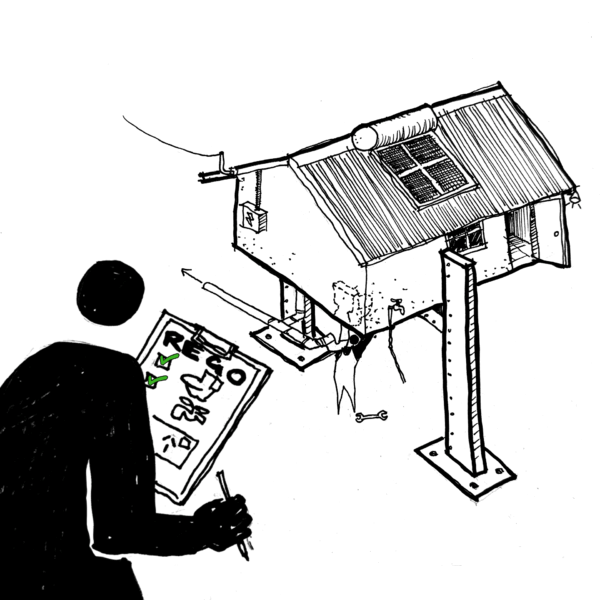ADVOCACY: “Roadworthy” Housing. Regular servicing keeps cars working, why not houses?
Governments service their fleet cars annually. Why don’t they do the same for a house?
Every car in Australia needs a rego check. It’s simple: if you don’t service your car, it breaks down. We accept that tyres, brakes, and engines wear out and need regular attention.
Housing is no different. Showers, taps, electrics, drains, and toilets all wear out under everyday use. Without cyclical maintenance, houses quickly stop working — and when a house fails, the health of the people inside it suffers.

Cyclical Maintenance is like a “rego” check for house.
The Australian Government has committed to the Closing the Gap targets, which include Target 9a: by 2031, increase the proportion of Aboriginal and Torres Strait Islander people living in appropriately sized (i.e., not overcrowded) housing to 88 %. Currently, 2021 Australian Government data shows that only 43 % of people in the Northern Territory live in appropriately sized housing. (Closing the Gap)
A common assumption is that crowding (or “overcrowding”) is solved primarily by building more houses. But even new houses will fail if they are not maintained. Functional houses reduce the pressure of crowding — because when taps, toilets, showers, drainage, and electrical systems all work, fewer people need to double up or shift into less‑suitable spaces just to survive.
But crowding is just one part of the problem. Poorly maintained homes contribute to the spread of infectious diseases like respiratory infections and gastroenteritis and increase the risk of chronic conditions such as cardiovascular disease.
A simple “rego check” for houses, done regularly, can keep homes working, extend their life, and improve health outcomes. Just as we wouldn’t drive an unroadworthy car, we shouldn’t ask families to live in unmaintained houses.









